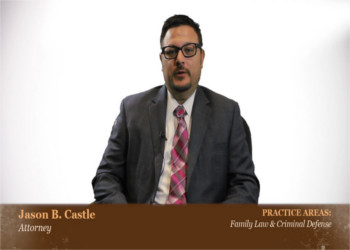Does a Spousal Affair Affect my Divorce Case?
Hi. My name is Larry Hirsch, and I practise exclusively in the domestic relations group at Jaburg & Wilk. First and foremost, the court doesn’t care about the affair that your spouse had. Our courts are not in the business of making moral judgments, i.e. who slept with who, when they slept with who. More often than not, an affair during the marriage does not come into play during your divorce proceeding.
When Can an Affair have an Impact on the Case?
There are two occasions where an affair can actually have an impact on your case. The first one is when there was waste, that’s also called dissipation. For example, let’s just call it “Husband” for the time being, and Husband was having an affair for the better part of two years during the marriage, and during that affair, Husband was buying his paramour, or his girlfriend, fur coats, diamond rings, taking her on lavish vacations, maybe he helped pay a car. Well, in this situation, where the community income or the earnings of Husband was community, that would be considered community waste, so we’re going to want to take a look at all the bank statements, all the credit card statements, and we are going to take a detailed review as to all of the money that the spouse who is having the affair spent on that other individual. Now, the spouse who is not having the affair is entitled to one half reimbursement of those funds that was spent by the spouse who is having an affair. So, to make it really simplistic, if during the marriage Husband had a paramour, and he bought her a diamond ring valued at $10,000, and we can prove and show the receipt – and possibly even the ring – then the spouse who did not spend that money is entitled to reimbursement of $5000 in that situation.
The other situation where an affair may come into play is if the two parties are unfortunately fighting for custody of the minor children or the minor child. And it doesn’t really come into play that mom or dad was having an affair, but the issue really becomes the judgement of that parent when they were having the affair, so if mom or dad was simply dating somebody else, the court’s not really going to view it as that big of a deal. On the other hand, if, let’s say, mom was going out seven nights a week when she should have been at home doing the children’s homework, if dad was out spending thousands of dollars on vacations for his girlfriend while his children couldn’t afford books at school, the court’s going to look at those types of judgement calls, and it may come into play during a custodial fight in a divorce.
By: Laurence B. Hirsch











